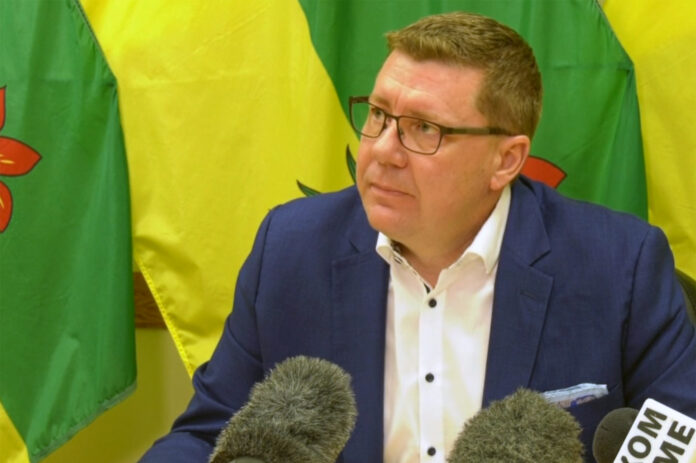During his address to the Municipalities of Saskatchewan annual convention, Premier Scott Moe announced what will be happening with two major programs this year.
Moe announced that municipalities will be receiving more than $275 million in the 2021-22 Municipal Revenue Sharing Program, which is the second-highest overall amount ever.
“Revenue sharing continues to flow under the formula that is quite literally the envy of the nation,” Moe said.
“Now revenue sharing is going to be down slightly in the coming fiscal year because of the weaker PST revenues that the province received two years ago, and there may be another drop because of the slowdown related to COVID-19. That’s the nature of the revenue sharing formula.”
He explained that the funding could be used by municipalities flexibly while investing in priorities unique to their communities. The stability is key during the COVID-19 pandemic. Moe noted the fast tracking of lump sum funding in June 2020.
The annual provincial funding amount for the program is based on three quarters of one point of the provincial sales tax (PST) revenue collected from two years prior. Overall funding under the Municipal Revenue Sharing Program for 2021-22 represents an approximately 117 per cent increase from the 2007-08 provincial fiscal year.
From the total Municipal Revenue Sharing Program, $1.5 million will be invested in the Targeted Sector Support Initiative. The initiative supports municipal projects that advance priority areas, such as good governance, regional planning, and inter-community collaboration. The initiative is co-managed by the provincial government and municipal partners.
With this announcement, more than $3.4 billion in provincial funding has been allocated to support municipalities across Saskatchewan through this program from 2007-08 to 2021-22. More details will be available when the provincial budget is released in April.
Moe also announced an additional $3 million in capital funding available to improve conditions on highways in Saskatchewan’s smaller cities. The additional funding will boost capital dollars in the Urban Highway Connector Program (UHCP) to $10 million over two years.
“We are going to add another $3 million so that we can advance projects that are crucial for our economy, for our economic recovery and for our quality and safety of life in our communities,” Moe said.
The UHCP was created in 2008 to provide stable funding and service levels on highways within city limits that connect to the provincial networks. The program provides financial assistance to urban municipalities for the maintenance, operation and rehabilitation of these roadways.
UHCP funded significant rehabilitation projects in Regina, Estevan, and Yorkton in the 2020-21-budget year, along with lighting upgrades in Lloydminster and starting a regional planning project in the Swift Current area.
Rehabilitation projects in Prince Albert, Estevan, Meadow Lake, Lloydminster, Humboldt, North Battleford, Moose Jaw and Yorkton have been identified as priorities in the UHCP’s multi-year plan.
Through a detailed review of UHCP, towns and cities requested changes to the program. One of the most significant changes is the Ministry of Highways assuming 100 per cent of the maintenance and rehabilitation costs for urban connectors in Saskatchewan towns as of April 1, 2021, reducing the number of municipalities competing for UHCP dollars each year. Changes are also being made to how funding is allocated to Regina and Saskatoon.
The government added in a release that it is meeting its target of improving more than 1,000 km of provincial highways this year, the first of its 10-year Growth Plan goal to build and upgrade 10,000 km of highways.
Since 2008, the province has invested more than $200 million into improving urban highways in Saskatchewan over and above municipal revenue sharing. During that same period, the Government of Saskatchewan has invested more than $9.8 billion in highways infrastructure, improving more than 15,800 km of Saskatchewan highways.
Moe also announced approval of investing in 30 projects in the Investing in Canada Infrastructure Program (ICIP). The governments of Canada and Saskatchewan signed a bilateral agreement in October 2018 for the Investing in Canada Infrastructure Program (ICIP).
“That’s 30 ICIP projects across the province. These will include projects to improve our wastewater systems in our communities, replace bridges and to renovate some of our recreation facilities,” Moe said.


